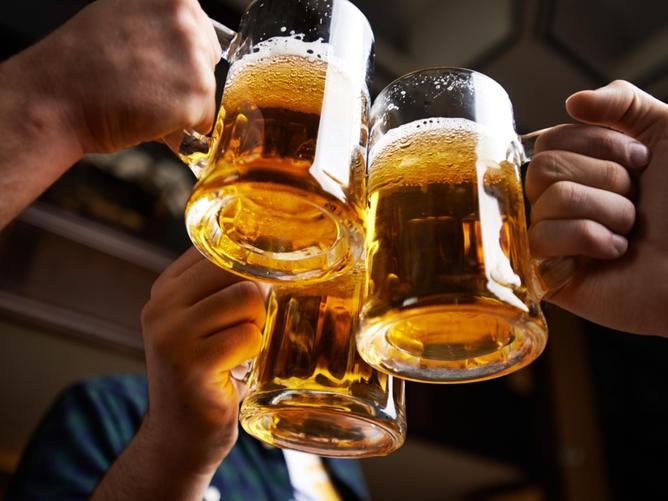Australians have been largely kept in the dark about the kilojoules and sugar lurking in their drink, but that could soon change under a proposal to consider nutrition labels on alcoholic beverages.
Food Standards Australia New Zealand (FSANZ) announced on Monday that it was preparing a proposal consider including energy labels on alcoholic beverages.
Unlike most other packaged foods and beverages, packaged alcoholic beverages have long been exempt from providing nutritional information on the label.
It means that consumers have failed to understand the energy contribution, measured in kilojoules or calories, that alcohol brings to their diet.
Alcohol is high in energy content, providing 29.3 kilojoules per gram, according to the National Health and Medical Research Council.
The Australian Dietary Guidelines recommend limiting alcohol intake to help control body weight as it is energy dense but nutrient poor.
Last year, FSANZ found that consumers’ understanding of the energy content of beer, wine and spirits was poor.
An analysis of 22 studies showed that only a minority could correctly guess the energy content of a drink (the number of kilojoules or calories) using general knowledge.
In general, the consumers surveyed were also unable to correctly classify the energy content of the different alcoholic beverages.
They tended to mistakenly think that wine and spirits had less energy compared to other alcoholic beverages.
Meanwhile, beer was mistakenly thought to have more energy than other alcoholic beverages, according to the FSANZ evidence assessment in June last year.

The labeling of alcoholic beverages with their energy content is not specifically regulated anywhere in the world, but some countries are in the process of developing mandatory requirements for it.
In the UK, health experts earlier this year called for better alcohol labeling after an independent laboratory tested 30 bottles of red, white, rosé, fruit and sparkling wine from the top 10 wine brands.
The study, commissioned by the Alcohol Health Alliance UK, revealed that wine could contain anywhere from zero to a staggering 59 grams of sugar per 700ml bottle, the same as eating more than four frozen donuts in one sitting.
In contrast, the World Health Organization has recommended that sugar intake be reduced to less than 10 percent of total daily energy intake, which averages about 12 teaspoons (50 grams) of sugar per day for a adult.
The proposal to consider alcohol energy labels in Australia comes after government ministers in 2019 asked FSANZ to consider the issue.
FSANZ will consult with industry on the proposal this month before releasing it for public comment later this year.
.
